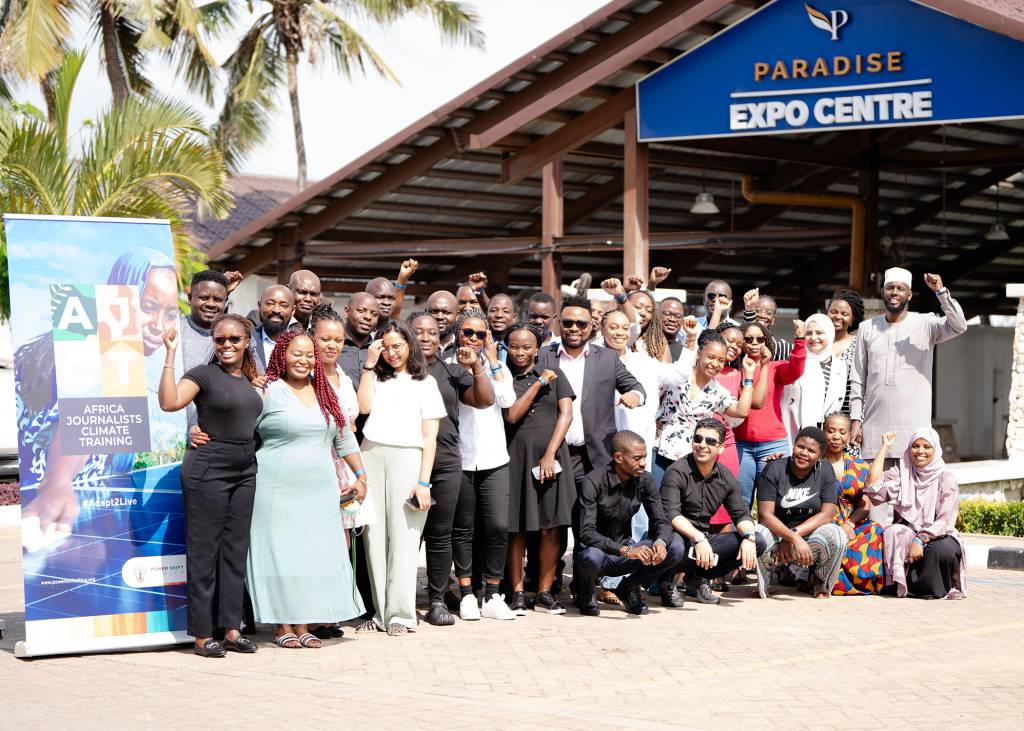Power Shift Africa Trains African Journalists on Climate Adaptation Reporting
Power Shift Africa (PSA), a Nairobi-based think tank focused on mobilizing climate action in Africa and amplifying African voices through increased visibility in media and public communications, recently trained 30 African journalists on climate adaptation and finance in Mombasa, Kenya.

The three-day climate adaptation training, which gathered journalists and experts from all five regions of Africa, was designed to bridge the gap in media coverage of Africa’s climate adaptation strategies and challenges. The training was an outcome of a PSA survey on the key areas where media development was required to refine and strengthen climate adaptation reporting on the continent.
While opening the training, PSA Executive Director Mohamed Adow said they recognize the vital and complex role played by journalists in raising awareness and informing the public on climate adaptation, hence the focus on enhancing the capacity of African journalists to mainstream the continent’s climate adaptation needs and demands for building resilience on the continent.
“Despite the significant impact of climate change on African communities, media coverage of climate adaptation in Africa remains inadequate. This has affected the understanding of the issue among Africans, hurting communities’ efforts to build their resilience and adaptive capacity and limited the provision of funds required to address the climate crisis,” said Adow.
In her presentation, an agriculture and climate adaptation expert, Mwandwe Chileshe, described climate adaptation as essential to addressing the climate crisis in Africa, hence the need for the media to popularize climate adaptation and advocate for financing to reduce the continent’s vulnerability to worsening impacts of climate change.
“The media has to emphasize the gap between the current financing and actual needs of the continent on adaptation finance. Climate adaptation in Africa is underfinanced and underprepared for. Developing countries need 50% more financial support for immediate climate adaptation than previously estimated. The debt implications of adaptation financing through loans should be explored to show how they impact national debt,” she said.
One of the participants, a reporter from The New Times of Rwanda, Michel Nkurunziza, pledged to highlight Africa’s most pressing adaptation issues by underscoring the urgency and relevance of adaptation efforts and interventions on the continent. “This training enlightened me on Africa’s priorities during the coming Conference of Parties (COP29). The skills gained here will help me tell climate adaptation stories impactfully,” he said.
PSA believes the magnitude of Africa’s climate crisis and its impact on lives and livelihoods demands concerted efforts to address it. To this end, the PSA media convening concluded with an adaptation roundtable that sought to identify and build the capacity of a diversity of voices to champion Africa’s agenda in multilateral climate processes. The roundtable brought together stakeholders in science, academia, research, politics, media, civil society, negotiators and other interest groups from across Africa to chart a common course for adaptation on the continent.
















